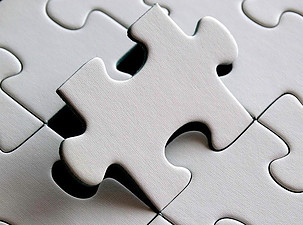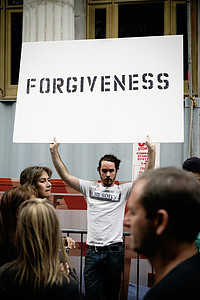 I’ve made it a habit to write in my journal whenever I feel anxious, depressed or angry. Writing our worries and sorrows down on a journal has a soothing effect on our psyche. It allows us to clear out the emotional turmoil which can send us into downward spirals of self-judgment. This article will describe how to journal for anxiety. I will tell you how to effectively pick up a journal and clear out your emotional whirlpools by writing in it.
I’ve made it a habit to write in my journal whenever I feel anxious, depressed or angry. Writing our worries and sorrows down on a journal has a soothing effect on our psyche. It allows us to clear out the emotional turmoil which can send us into downward spirals of self-judgment. This article will describe how to journal for anxiety. I will tell you how to effectively pick up a journal and clear out your emotional whirlpools by writing in it.
The soothing power of journaling cannot be overstated. It is an inexpensive, accessible and reliable habit which anyone can install. The benefits of journaling are great; as I will leave clear in this article.
My hope is that by the end of this article you will be inspired to take action and begin writing in a journal whenever you feel the need to clear out some emotional space.
Journaling Is A Habit
Like with any habit it takes time and consistency to get it to stick. Please read this article for more on how to establish journaling as a lasting habit.
Journaling is a form of self-therapy which is accessible to anyone who can write. Journaling is a skill; it takes practice to be able to honestly write down our thoughts and feelings. If you want to use journaling to soothe anxiety (or any other “negative” mood), one thing is essential: honesty.
You have to be honest about what you’re feeling and why you’re feeling it. If you aren’t honest in you journal, then you won’t be able to apply the knowledge in this article. If you hide your sorrows, desires and frustrations behind a mask of “acceptability”, you will not be able to get at the core of what is causing your anxiety.

Your journal is a sacred space. It’s a place where you can be yourself without fear of being judged.
For example, if you had a dream which caused you stress be honest with yourself about it; write down what happened in the dream and why it caused you to feel the way you did.
Treat your journal like the sacred space it is and it will always serve you well when you want to clear out your emotional turmoil. It will be an understanding friend who is always ready and willing to listen without judgment.
Now on to the steps for writing anxiety away.
Step 1: Just Write
I like to start my journaling by writing about my day, where I am in life and what I’m feeling. I don’t immediately delve into what’s troubling me. This “warm up” allows me to get into the frame of mind of sharing my inner experience with my journal. It loosens up my introspective awareness and puts me into the flow of writing honestly and fearlessly.
Writing scares a lot of people. I believe it’s because we’ve been conditioned by the schooling system to believe there is a right way to write and a wrong way to write. Many of us are afraid of being wrong, so we don’t even try.
While writing is a skill which can be trained and mastered, it’s important to realize one vital thing when writing in your journal: This is your journal.
It’s your own private world. The only person judging what is right and wrong in your journal is you.
This is so important I’m going to write it again. Any judgment we feel when we write in our journal is coming from us.
Can You See Why This Is So Important?
Judgment means comparing to the past. A child can’t judge, because a child has no past to compare things to. That’s why children have no concept of what’s appropriate to say or do in public, they have no models of acceptability to compare their behaviors to. They don’t judge themselves.
That’s also why children are so creative. They don’t hold anything back and leave it all on the field.

Then as children age they learn more about what is “decent” public behavior and mold into societal expectations.
But fitting in comes with a cost. As we age we forget we are unique beings with our own desires, dreams and creative capabilities. It’s no surprise that as children go through school they stop being curious. Carl Sagan once noted how all kindergartners are science enthusiasts; they ask profound questions like “What is a dream?”, “Why do we have toes?” and “Why is the sky blue?”
Sagan went on to say that by the time children are in 12th grade, that curiosity has been snuffed out. He said that something terrible has happened between kindergarten and the 12th grade.
Children are socialized to fit in. And in so doing forget who they are. They forget what their curious about, what they’re interested in and what their heart dreams about.
It happens to most of us. We judge ourselves into conformity.
And journaling can help melt our shell of judgment away.
Notice If You Judge Yourself While You Journal
This is extremely important. If while you’re journaling you sense you’re judging your writing or yourself it means you’re holding yourself accountable to some standard of behavior which you believe you need to conform to.
But effective journaling is about letting go of judgment and expressing yourself freely!
When we judge we limit. Judging puts things into boxes, it constricts them into conditioned categories.
When we judge other people we are comparing them to what we believe reality should be. If they fit into our categories we accept them; if they don’t, we reject them. The person might be a fine, upstanding individual with much to teach us, but the moment we judge him/her we close ourselves off from them.
The more we judge the more we limit and the less we experience. Our judgments are not a reflection of reality; they are a reflection of ourselves. By judging we impose our expectations on the world.
The more we judge others the more we judge ourselves. This is a key spiritual principle: Our external world is a reflection of our internal world.
So if by judging others we limit them, what do you think happens when we judge ourselves?
We limit ourselves.
Journaling Opens The Door
Journaling swings the door to our judgments wide open. It lays them all out for us to feel and read, bare, on the page. If while you’re writing you’re thinking “This is so stupid”, “I’m a terrible writer” or “My writing should be better” then you’re judging yourself.
You’re holding yourself to a standard which, for some reason, you’ve decided you need to meet with your self-expression.
But is it really a standard you want? Or is it a standard you’ve been conditioned to want?
Journaling helps us let go of our judgments. It allows us to remember who we truly are and to express ourselves fearlessly.
Our real life begins when our authenticity emerges. Journaling will allow your authentic self to emerge.
When To Journal
I go through phases in my journaling. Some periods I journal every day. Other times, I journal only when I feel the need to; like when I’m feeling anxious because I want something to happen or depressed because I allow the state of the world to get to me.
There is no hard and fast rule on when to journal. I believe the best we can do is to do what works for us. Journaling always makes me feel better when I’m feeling anxious.
If I’m anxious all I do is open my journal and write about my day. Eventually I will start writing about my anxiety.
I investigate the source of the emotion; I retrace my steps throughout the day to determine at what point I began feeling the anxiety. What triggered it? (being Present throughout the day is essential to this step)
- Was it something I read online?
- Was it something someone said to me?
- Was it something I remembered?
Doing this allows me to identify my triggers. Triggers are events which cause us to become less conscious, to react emotionally rather than respond intelligently. Everyone has triggers (except enlightened monks, but we’re not them).
To Release Anxiety, Identify Your Triggers
Journaling helps us identify our triggers. And once we’ve identified the trigger we can take steps to disarm it. For example, sometimes I experience anxiety over financial success. I am successful in the most important areas of life; financial success is something I’m working on.
Sometimes things happen in my life which cause me to feel anxious about my finances. For example, I see something in social media that causes me to feel envy, or there’s something I want to do which I can’t do because I don’t have the required funds, or I begin to feel impatient for the rewards of my work.
Journaling Helps Identify Triggers
Thanks to journaling I’ve managed to identify that most of my triggers are related to finances!
When I journal I can go through the events of my day and pinpoint exactly when I started feeling anxiety. I can then turn the event around with my words, dissect it. I then notice that the anxiety is a result of my judgment; judging myself as not being good enough, talented enough or lucky enough to create financial success.
The moment I discover that my anxiety stems from my self-judgment is the moment I become capable of forgiving myself. This is why it’s essential to identify our triggers, if we don’t know what caused the emotion we are not able to forgive ourselves for feeling it.
 In my journal, I write that I am doing the best I can with the tools I have. That everyone is one their own journey and there is no need for me to compare myself to others. And I activate my gratitude for what I do have, my health, my relationships, my life experience, my creative energy, and so many other things. Being grateful switches my focus from what I don’t have to what I do have. I go from being in scarcity to being in abundance.
In my journal, I write that I am doing the best I can with the tools I have. That everyone is one their own journey and there is no need for me to compare myself to others. And I activate my gratitude for what I do have, my health, my relationships, my life experience, my creative energy, and so many other things. Being grateful switches my focus from what I don’t have to what I do have. I go from being in scarcity to being in abundance.
The moment we forgive ourselves is the moment we release the emotional knots. We put so much pressure on ourselves to live up to expectations we believe we need to meet. Forgiving ourselves takes the pressure away and allows us our inner child to shine through!
Steps To Journal Away Anxiety
If we want to journal away your anxiety it’s essential that we:
- Identify our triggers.
- Determine how we are judging ourselves (because all anxiety stems from judgment).
- And forgive ourselves.
We have to literally write out “I forgive you, Erick.” You wouldn’t write “Erick”, of course. Unless “Erick” is your name, then you would write Erick.
The moment we forgive ourselves in our writing is the moment we release the emotional knots which form within us as we live out our lives. And the benefits of clearing out our emotions are gargantuan, you can read about them in these articles:
- Reclaim Your Mind – Master Your Attention
- How To Release Negative Emotions
- Does Money Control You?
- Use the Power of The Subconscious Mind To Make Things Happen – Succeed Effortlessly
Clearing out our stagnant emotions allows us to make new choices. These new choices will happen naturally, without much effort on our part. These new choices will, in turn, lead us to new and unexpected places! That’s the power of clearing out our emotions. It cannot be overstated.
It’s also why consuming so much violent, competitive media keeps people locked into their situations of competition and scarcity. They don’t realize that the media they consume programs their emotions and keeps them embedded in situations which complement their media habits.
If we want a new life we have to start with clearing out our emotions and cultivating new ones which align with what we want.
If you have any questions about how to do this feel free to ask them in the comments section!
Conclusion: Journal Your Worries Away!
I hope this article has adequately showcased the power journaling has to soothe not only our anxiety, but any “negative” emotion. I used journaling to heal myself from a broken heart. I have experienced the power of the practice firsthand.
This purpose of this website is to educate people on their primal power. Human beings are powerful spiritual beings. We all have tremendous power ready to access, if we know how to do so. The articles in this blog are mean to inform readers about the choices they can make now to create a wealthy life tomorrow.
I leave you now with an invitation. I invite you to apply what yo learned in this article. The next time you feel anxious, depressed or angry, try journaling. Write about your day, identify your triggers and forgive yourself for not meeting your expectations.
It’s so liberating.
To our wealth and success.